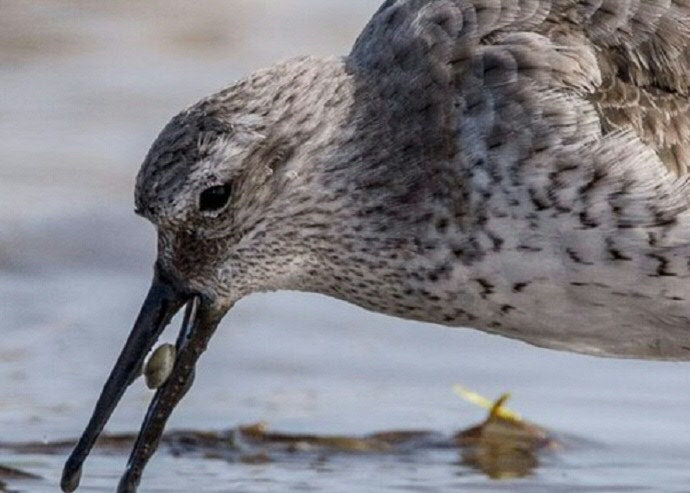Shrinking shorebird pays the bill for rapid Arctic warming while wintering in the tropics

Red knots migrate between their breeding grounds in the Arctic and their wintering grounds in West Africa. Chicks currently born under rapidly warming conditions attain smaller sizes before migration starts, because they miss the insect peak. If they reach their wintering grounds in the tropics, they are faced with a second disadvantage: their shorter bills cannot reach their favourite shellfish food. This results in an evolutionary force towards smaller-sized birds with large bills.
These findings will be published Friday 13 May 2016 in Science by an international team of researchers from the Netherlands (NIOZ and Univ. Groningen), Australia, France, Poland and Russia.
Source: Press Release NIOZ Royal Netherlands Istitute for Sea Research
More news
-
29 January 2026
Microplastic research - media hype or real danger?
-
27 January 2026
ERC Proof of Concept grant for Maria Loi
